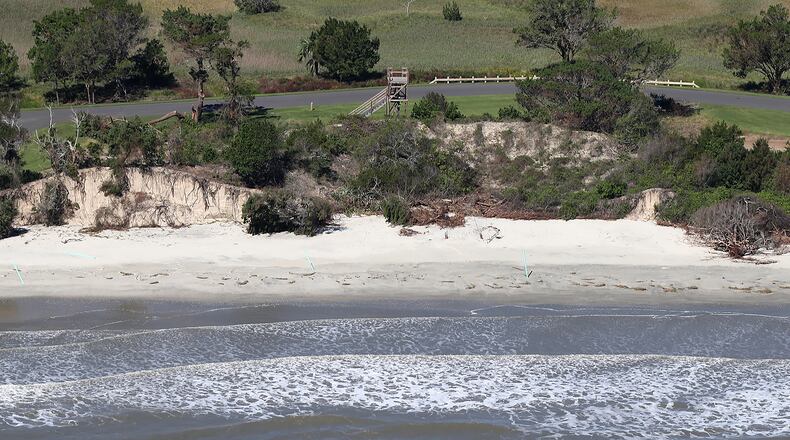Two coastal Georgia projects made the list of “dirty dozen” proposals and policies that environmentalists say could harm the state’s waterways.
The Georgia Water Coalition included a proposed commercial rocket launchpad in Camden County and development of luxury homes on Sea Island on the list of 12 issues water advocates said highlight policies that threaten the state’s waterways.
“This attempts to highlight the worst offenses and greatest threats to Georgia’s water and its people,” said Joe Cook, a member of the coalition.
The annual list typically identifies the “most polluted places” in Georgia.
Environmentalists have opposed the construction of Spaceport Camden, which county officials seek to build on the coast, because it would launch rockets over Cumberland and Little Cumberland islands.
Property owners said they worry about potential failed launches that could cause rocket debris to harm their homes and the plants and wildlife on the Cumberland Island National Seashore.
“Evacuations could shut down tourism on (Cumberland) Island, which is responsible for around $86.9 million of economic activity in Camden County,” coalition member Jennette Gayer said. “Aerospace experts are actually critical of the plan, and it appears Camden County is building a launchpad to nowhere.”
On Sea Island — where developers have proposed an upscale housing development called The Reserve — coalition members said the project would erode beaches on the island and nearby St. Simons Island.
"The plan to build eight luxury homes on a tiny stretch of the island known as the 'spit' can only be considered ill-conceived," said Gayer, who is also the director of the conservation group Environment Georgia.
The coalition also made note of Gov. Nathan Deal’s reluctance to publicly take a stand on offshore drilling, which it says would threaten the coast’s tourism and seafood industries if there were a spill.
The "dirty dozen," a list the coalition releases every year of what it calls the "worst offenses" against clean water in the state, also highlighted instances of what it called "dirty politics" that can create dirty lakes, rivers and streams.
For example, the Department of Natural Resources Board voted to change the state's water safety regulations. Environmentalists say the move allows high levels of water pollution.
The change puts a burden on members of the public to prove they are seriously affected by polluted water. Previously, a polluter was required to make sure what it puts into the state’s waterways doesn’t interfere with those trying to use the water.
“Georgia’s dirty politics often lead to dirty water,” Cook said. “Change is needed to clean up our politics and our water.”
Stay on top of what’s happening in Georgia government and politics at ajc.com/politics.
About the Author
Keep Reading
The Latest
Featured




